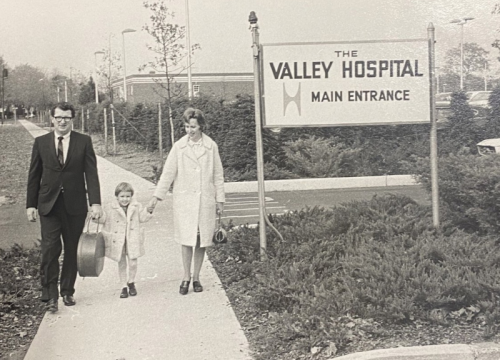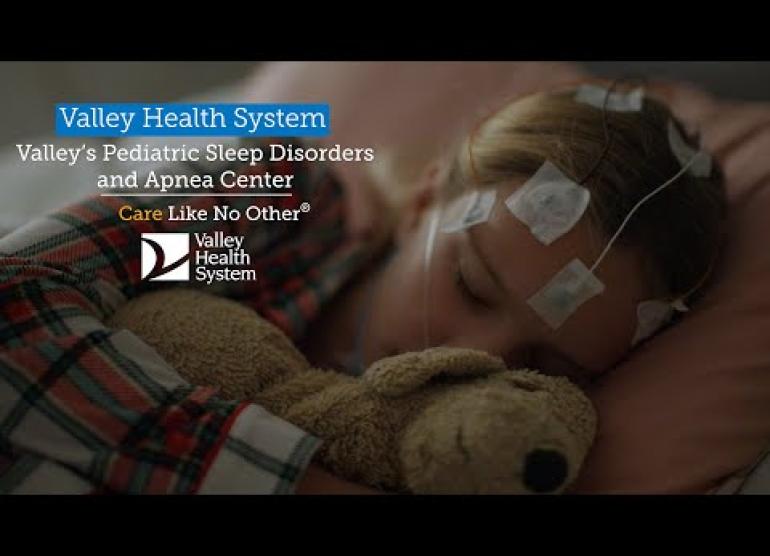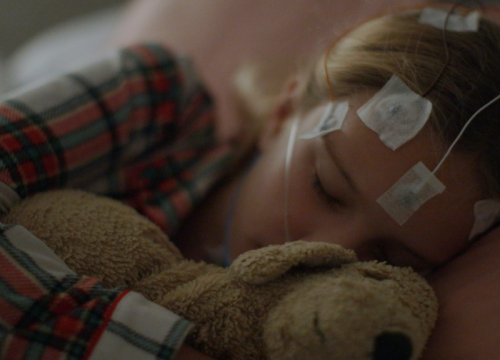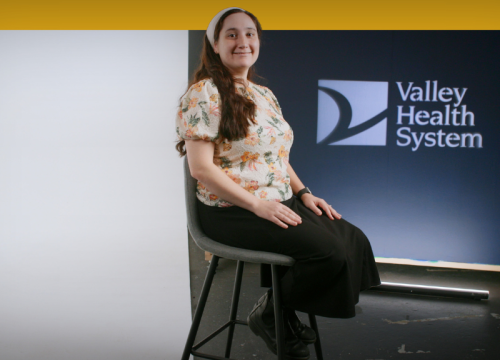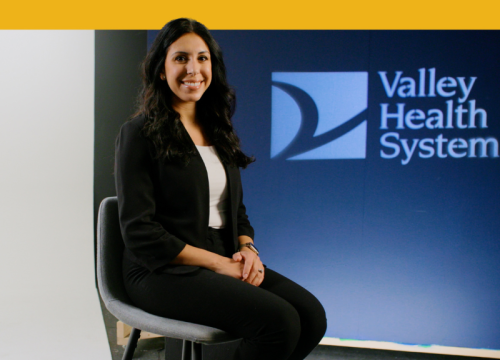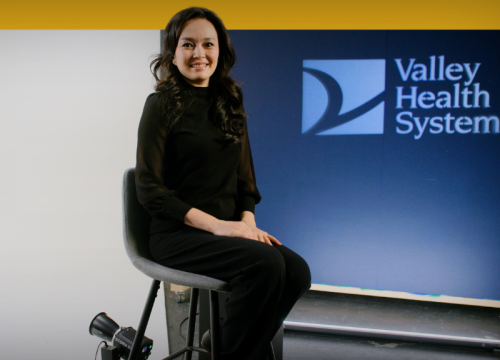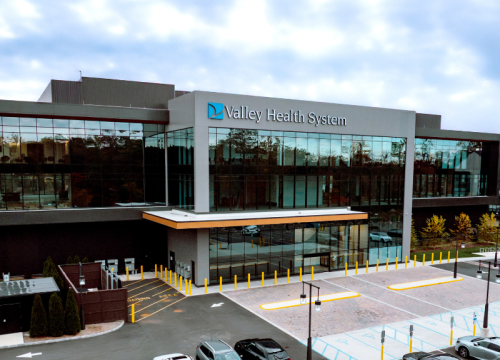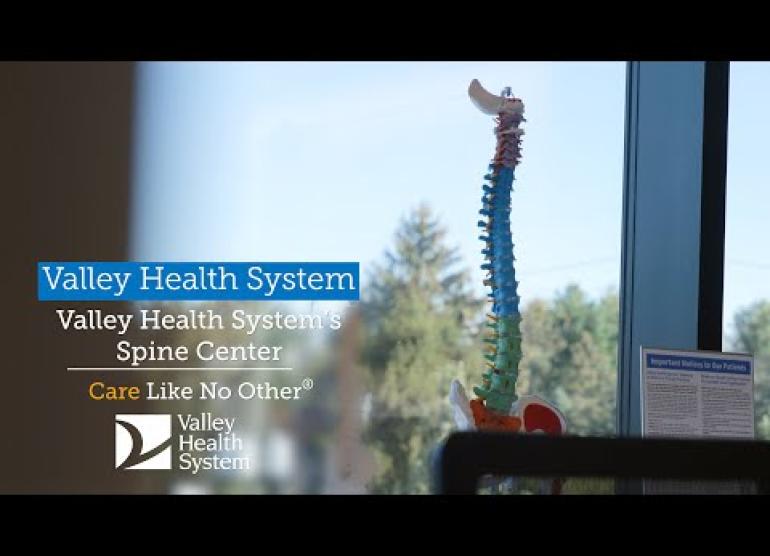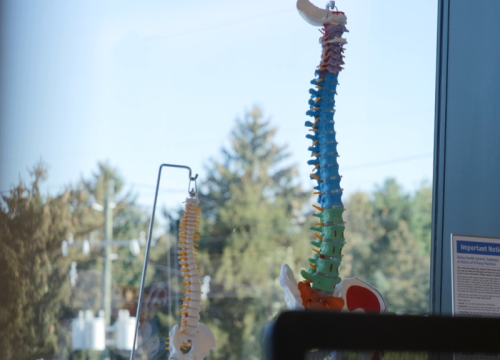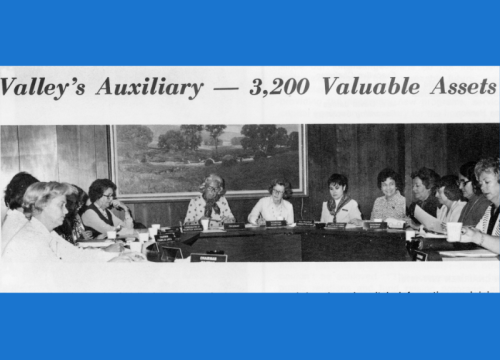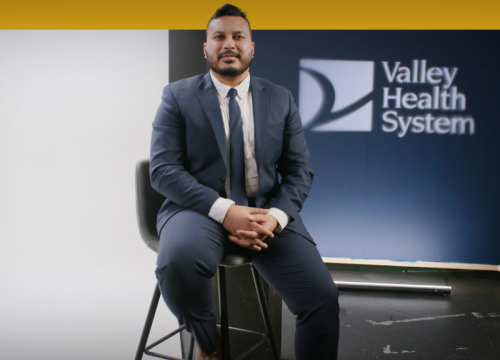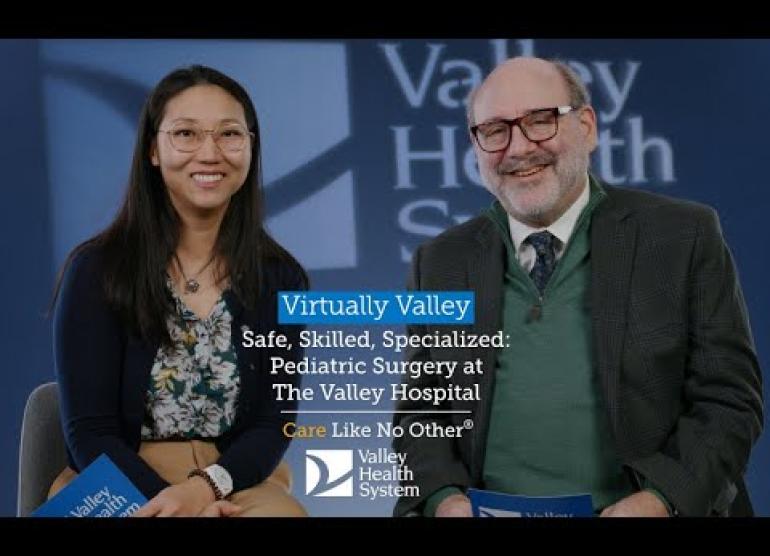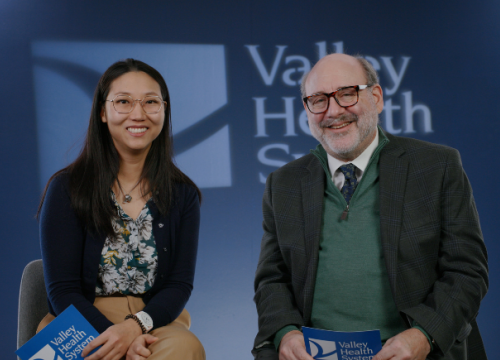Lymphoma is a cancer that arises from your white blood cells, the infection fighting cells. The disease typically involves lymph nodes but can also be found in the spleen and liver, as well as the bone marrow. Rarely, it may also involve other areas of the body, like the skin, lungs and other organs. When you choose Valley for lymphoma care, you will have a team of highly trained doctors, nurses and support staff who bring their daily commitment to compassion and innovation to you.
There are two broad classifications of lymphoma, and they are treated differently:
- Aggressive lymphoma
- Indolent (chronic) lymphoma
Aggressive forms of lymphoma, like Hodgkin lymphoma (Hodgkin’s disease) and diffuse large B-cell lymphoma typically are fast growing, and can become life threatening if left untreated, but these types of cancer are also curable, even when caught at an advanced stage. Meanwhile, indolent lymphomas like follicular lymphoma or marginal zone lymphoma are the opposite: they are typically slow growing and may not be detected until years later, and these may not require immediate treatment depending on the circumstances.
At Valley’s Center for Blood Disorders, our hematologic oncology team specializes in diagnosing and treating all types of lymphomas. We start by determining what kind of lymphoma you have — and we will put together your care plan from there.
You will have access to clinical trials and innovative treatments for lymphoma at Valley. Our expertise is also complemented by our affiliation with the Mount Sinai Health System. We collaborate with specialists from Mount Sinai on complex lymphoma cases, ensuring you have access to every treatment possible.
Hodgkin Lymphoma vs Non-Hodgkin’s Lymphoma
There are more than 70 types of lymphoma. There are 2 types of Hodgkin lymphoma: classical Hodgkin Lymphoma, or Nodular Lymphocyte Predominant Hodgkin Lymphoma. All other types are non-Hodgkin's lymphoma, some of which are aggressive and others are indolent.
Lymphoma Symptoms
Lymphoma does not always cause symptoms. Instead, the first indication that something may be wrong is an abnormal result from a routine blood test or imaging. In this case, your primary care doctor may refer you to a hematologist/oncologist (a doctor who specializes in blood cancers) for further testing.
Other times, signs of lymphoma may include:
- Swollen non-painful lymph nodes in the neck, groin or underarm
- Progressive fatigue and weakness
- Bone and joint pain
- Numbness or tingling in the hands or feet
- Bruising or bleeding easily
- Fevers and chills
- Night sweats
- Unexplained weight loss
Lymphoma Diagnosis at Valley
At Valley, we focus on helping you get an accurate and timely diagnosis, as well as imaging to determine your stage of lymphoma. This will allow us to develop a plan of action. During your first visit, we will discuss your symptoms. We will also take a thorough health history and conduct a physical exam.
Your hematologist/oncologist may also recommend one or more of the following tests:
- Blood tests, which can check for irregularities in your blood cells
- Imaging tests, such as X-rays, computed tomography (CT), magnetic resonance imaging (MRI), or Positron Emission Tomography (PET/CT)
- Lymph node biopsy, which involves sampling one of your lymph nodes to check for cancer
- Bone marrow biopsy, which tests a small sample of your bone marrow – but only if necessary
- Lumbar puncture (spinal tap), which can show if cancer has spread to your brain or spinal cord
- Molecular testing, which helps your team obtain prognostic information about your lymphoma
Aggressive Lymphomas
Aggressive lymphomas, by nature, are fast-growing and can become life-threatening if left untreated. Thankfully, these kinds of lymphomas are potentially curable.
Types of aggressive lymphomas include (but not limited to):
- Diffuse large B-cell lymphoma (DLBCL)
- Classical Hodgkin’s lymphoma
- Burkitt’s lymphoma
- Peripheral T-cell lymphomas
- Angioimmunoblastic T-cell lymphoma (AITL)
- Anaplastic large cell lymphoma (ALCL)
Indolent (chronic) Lymphoma
In contrast, indolent lymphomas are slow-growing. As a result, in many instances, they may not require treatment upon discovery, but rather can be monitored. In a number of cases, you may never reach the point of needing treatment.
Types of indolent lymphomas include:
- Chronic lymphocytic leukemia (CLL)/small lymphocytic lymphoma (SLL)
- Mantle cell lymphoma
- Follicular lymphoma
- Marginal zone lymphoma
- Peripheral T-cell lymphomas
Lymphoma Treatment at Valley
Your hematologist/oncologist may suggest one or more treatment options based on your type of lymphoma, overall health and specific preferences. These include:
- Chemotherapy
- Immunotherapy
- Targeted therapy
- Bispecific antibody therapy
- Radiation therapy
Chemotherapy
We try to avoid chemotherapy, except when it is the best option for treatment or in cases where it may increase your chance of a cure. We administer chemotherapy to kill cancer cells in your lymph nodes and other parts of your body. Treatment is provided at our Ambulatory Infusion Center at the Luckow Pavilion in Paramus.
Immunotherapy
New immunotherapy drugs use your body’s defense system to fight lymphoma. At Valley, our hematologists/oncologists have expertise using immunotherapy to treat many types of blood cancers. We are also researching new types of immunotherapies through clinical trials.
Bispecific Antibody Therapy
Bispecific antibodies, a type of immunotherapy, are a promising new treatment for certain types of lymphoma. Bispecific antibodies help your immune system rapidly target and kill cancer cells.
Radiation Therapy
Your team may recommend radiation therapy exclusively or combined with other treatments like chemotherapy and immunotherapy. Radiation therapy uses high-energy beams to kill cancer in your lymph nodes.
Supportive Care and Services for Lymphoma
Valley also offers supportive care to help manage your lymphoma care plan and treatment. This may include:
Fertility preservation: Some lymphoma treatments can affect your ability to have children. We can coordinate fertility preservation treatments with your lymphoma treatments if you want to maintain your options.
Supportive care: Our team understands the physical, emotional and spiritual challenges of lymphoma treatment. Our cancer support resources help you and your family navigate lymphoma treatment, making your well-being a priority. Our services range from financial support and nutritional counseling to support groups and social work services.
Why Choose Valley for Lymphoma Care?
- A team focused on you: Hematologists/oncologists and advanced practice providers at the Center for Blood Disorders are dedicated to providing you with compassionate and specialized care. They focus on providing you with an accurate diagnosis and putting an effective care plan in place as quickly as possible. They also work with other specialists like radiation oncologists, pathologists, surgeons and other specialists at Valley to provide comprehensive cancer care. We believe no cancer team in the region provides the unique blend of clinical excellence, genuine empathy and commitment to innovation that is found at Valley.
- A powerful partnership against lymphoma: Valley’s alliance with the Mount Sinai Health System means you have access to more lymphoma treatments, including stem cell transplants and CAR-T Therapy. Lymphoma specialists from Mount Sinai may also review your case, so you benefit from another set of experts.
- Nurses who specialize in cancer treatments: Nurses in our Infusion Center have certification from the Oncology Nursing Society. Beyond exceptional clinical skills, this level of expertise allows them to anticipate your needs and address any side effects throughout your treatment.
Expertise in clinical trials: Our blood cancer specialists are also researchers who are looking for new ways to treat lymphoma. At Valley, you may have access to clinical trials that are testing novel ways to treat lymphoma. You can now access the most advanced treatments, even those that are not widely available, without needing to travel into the city.
Supportive care: We offer cancer support services to help you cope with the physical, emotional and spiritual challenges of lymphoma treatment.



